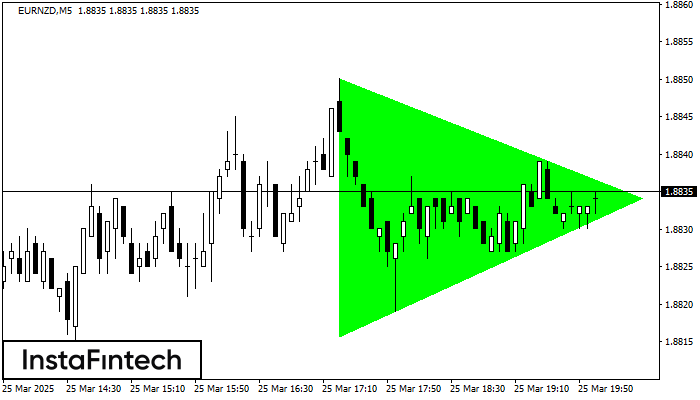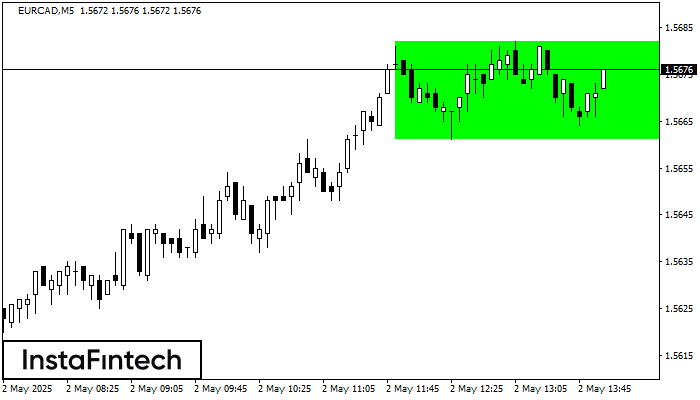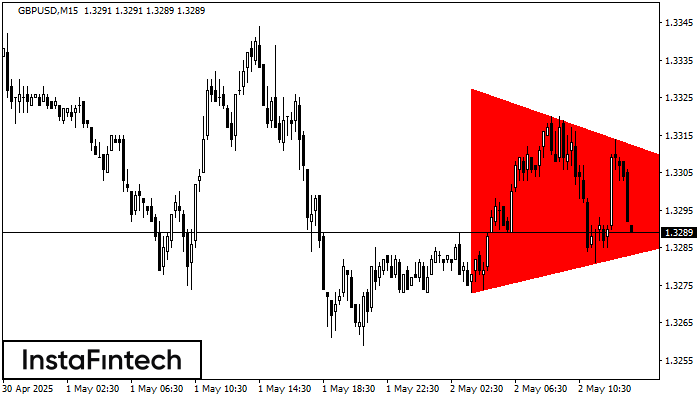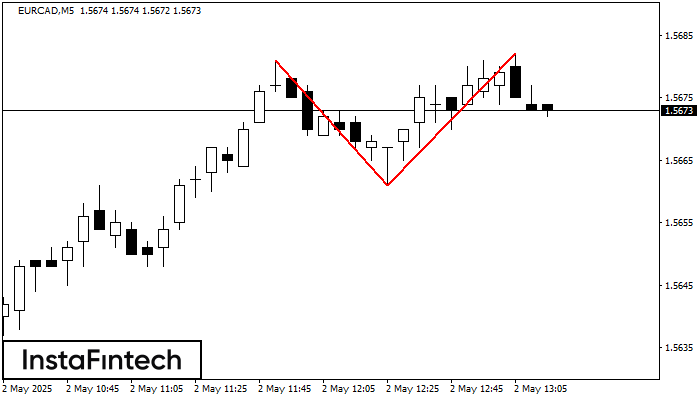Bullish Symmetrical Triangle
was formed on 25.03 at 20:05:23 (UTC+0)
signal strength 1 of 5

According to the chart of M5, EURNZD formed the Bullish Symmetrical Triangle pattern, which signals the trend will continue. Description. The upper border of the pattern touches the coordinates 1.8850/1.8834 whereas the lower border goes across 1.8816/1.8834. The pattern width is measured on the chart at 34 pips. If the Bullish Symmetrical Triangle pattern is in progress during the upward trend, this indicates the current trend will go on. In case 1.8834 is broken, the price could continue its move toward 1.8849.
The M5 and M15 time frames may have more false entry points.
See Also
- All
- All
- Bearish Rectangle
- Bearish Symmetrical Triangle
- Bearish Symmetrical Triangle
- Bullish Rectangle
- Double Top
- Double Top
- Triple Bottom
- Triple Bottom
- Triple Top
- Triple Top
- All
- All
- Buy
- Sale
- All
- 1
- 2
- 3
- 4
- 5
Rectángulo Alcista
was formed on 02.05 at 13:01:57 (UTC+0)
signal strength 1 of 5
Según el gráfico de M5, EURCAD formó el Rectángulo Alcista que es un patrón de la continuación de una tendencia. El patrón está contenido dentro de los siguientes límites
Los marcos de tiempo M5 y M15 pueden tener más puntos de entrada falsos.
Open chart in a new window
Triángulo Simétrico Bajista
was formed on 02.05 at 12:46:09 (UTC+0)
signal strength 2 of 5
Según el gráfico de M15, el GBPUSD formó el patrón Triángulo Simétrico Bajista. Descripción: El límite inferior es 1.3273/1.3295 y el límite superior es 1.3328/1.3295. El ancho del patrón
Los marcos de tiempo M5 y M15 pueden tener más puntos de entrada falsos.
Open chart in a new window
Doble Techo
was formed on 02.05 at 12:15:24 (UTC+0)
signal strength 1 of 5
El patrón Doble Techo ha sido formado en EURCAD M5. Esto señala que la tendencia ha sido cambiada de alcista a bajista. Probablemente, si la base del patrón 1.5661
Los marcos de tiempo M5 y M15 pueden tener más puntos de entrada falsos.
Open chart in a new window



















